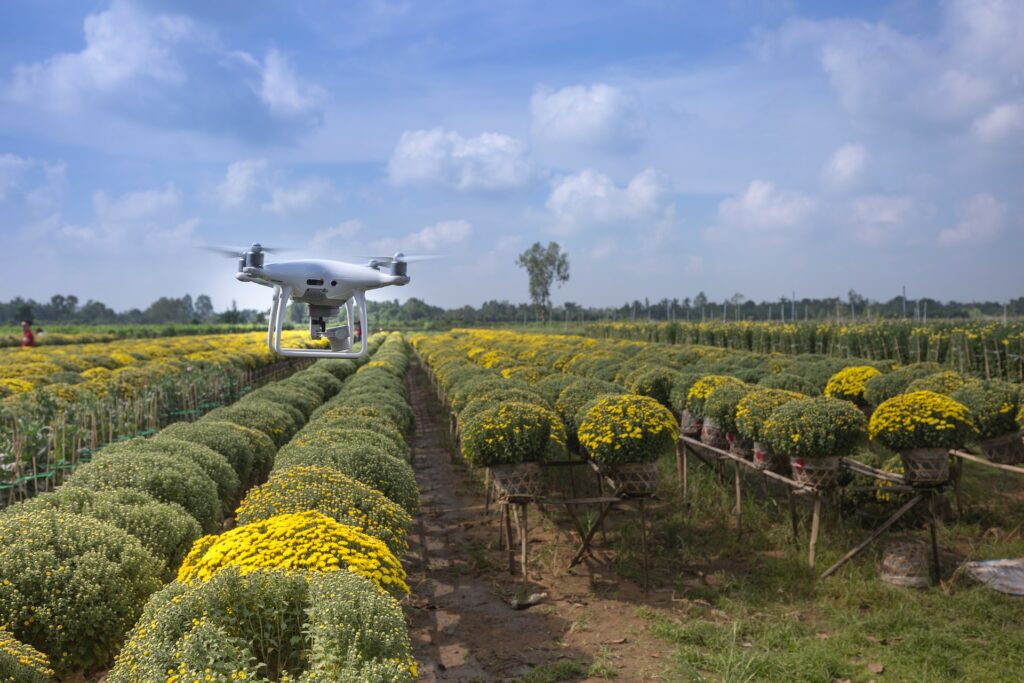Digitalization offers significant opportunities to improve the mitigation of environmental and human rights challenges in agricultural commodity supply chains. By leveraging digital technologies, stakeholders can enhance transparency, enable data-driven decision-making, empower smallholders, and promote sustainable practices throughout the supply chain.
How can digitalization improve mitigating the environmental and human rights challenges in agricultural commodity supply chains in concrete terms?
Digitalization can play a significant role in improving the mitigation of environmental and human rights challenges in agricultural commodity supply chains. Here are some ways in which digitalization can contribute to this:
- Supply Chain Traceability: Digital technologies, such as blockchain, IoT (Internet of Things), and QR codes, can enable transparent and reliable supply chain traceability. These technologies can track and record the movement of agricultural commodities from farm to fork, providing visibility into each stage of the supply chain. Traceability helps identify and address environmental and social risks, such as deforestation, illegal practices, and labor rights violations.
- Data Collection and Analysis: Digital tools facilitate data collection on various environmental and social indicators, including land use, water consumption, greenhouse gas emissions, and labor conditions. This data can be analyzed to identify patterns, trends, and areas for improvement. Data-driven insights enable more targeted interventions to address environmental and human rights challenges.
- Remote Sensing and Monitoring: Satellite imagery, drones, and remote sensing technologies can monitor agricultural landscapes and detect changes in land use, deforestation, and ecosystem health. These tools provide real-time and accurate data on environmental conditions, enabling early warning systems for environmental risks. Remote monitoring also helps identify and prevent human rights abuses in supply chains.
- Farmer Advisory Services: Digital platforms can deliver personalized advisory services to smallholders, providing guidance on sustainable agricultural practices, weather forecasting, pest and disease management, and market information. Access to information and knowledge empowers smallholders to adopt environmentally friendly practices, enhance productivity, and improve their resilience.
- Digital Payments and Financial Services: Digital financial services, including mobile payments and digital wallets, can enhance smallholders’ access to financial services, credit, and insurance. Streamlining financial transactions through digital platforms reduces costs, increases efficiency, and improves financial inclusion among smallholders.
- Training and Capacity Building: Online training platforms and e-learning tools can deliver training and capacity-building programs to smallholders, improving their knowledge and skills in sustainable farming practices, environmental management, and human rights. Digital platforms enable scalable and cost-effective training, reaching a larger number of smallholders in remote areas.
- Grievance Mechanisms and Feedback Channels: Digital platforms can facilitate the establishment of grievance mechanisms and feedback channels for smallholders and workers to report violations of environmental and human rights standards. These mechanisms ensure that concerns are addressed, remedial actions are taken, and accountability is enforced throughout the supply chain.
- Collaboration and Knowledge Sharing: Digital platforms can connect various stakeholders in agricultural supply chains, fostering collaboration, information exchange, and best practice sharing. Online communities, forums, and knowledge-sharing platforms enable the sharing of experiences, challenges, and solutions among smallholders, corporate buyers, NGOs, and experts.
- Market Access and e-Commerce: Digital platforms can provide smallholders with direct access to markets, bypassing traditional intermediaries and improving market transparency. E-commerce platforms and online marketplaces connect smallholders with buyers, facilitating fair and direct trade relationships and enhancing market opportunities for sustainably produced commodities.
- Impact Monitoring and Reporting: Digital tools enable real-time monitoring and reporting of environmental and social impact indicators. This information can be used to demonstrate compliance with sustainability commitments, support certification processes, and provide transparent reporting to stakeholders.
How Sutti solution designed and deployed by Ksapa can help mitigate risks through greater digitalization of agricultural supply chain stakeholders?
The SUTTI Digital Suite was developed by Ksapa to deliver scalable capacity-building programs across fragmented value chains. It maximizes access to training via an e-learning tool and tracks program impact against social, environmental and economic performance targets. This ultimately helps industrial groups better understand their procurement map but also enables to bring information and collect data with an off-road solution, adaptable to most contexts, adaptable to all kind of users, including vulnerable populations.
Participant App : It is inherently user-centric in that it is adapted to users’ essential needs, in contexts where access to the latest technology is still pending.
Accessible : Our participant App works offline and adapts to unstable, difficult or costly access to internet connections. E-learning is rendered accessible at any time and collected data is stored on the phone until Internet access is stable again.
SUTTI Operational Management System : Our back office interface allows Training Delivery Teams to manage all operational considerations on the ground
Versatile : Our Participant App works on web-surfing feature phones as well as on old or modern smartphones.
Impact Performance Measurement and Reporting : The SUTTI Global Dashboard allows Programs Sponsors – Industrial Groups & Coalitions, SUTTI Investors – to monitor and track programs impacts.
Illiterate-friendly : Our Participant App leans on diverse media (pictures, videos, etc.). Wherever we use text, it is synthetically vocalized. That way, it can be used by the illiterate as well as by participants as they work, without handling their phones.
Conclusion
Digitalization offers significant opportunities to improve the mitigation of environmental and human rights challenges in agricultural commodity supply chains. By leveraging digital technologies, stakeholders can enhance transparency, enable data-driven decision-making, empower smallholders, and promote sustainable practices throughout the supply chain.
Christian works at Ksapa as a Digital Solutions Director. He has 20 years of professional experience in the IT sector, having held various positions in solution development and sales at IBM France, Metamerge A/S (Norway) and the French Space Agency (Centre National Etudes Spatiales).
Wishing to strengthen the contribution of his projects to the common good, Christian recently completed an Executive Masters at Mines ParisTech/ISIGE.
Christian speaks French, English, Serbian, Spanish and Russian.






